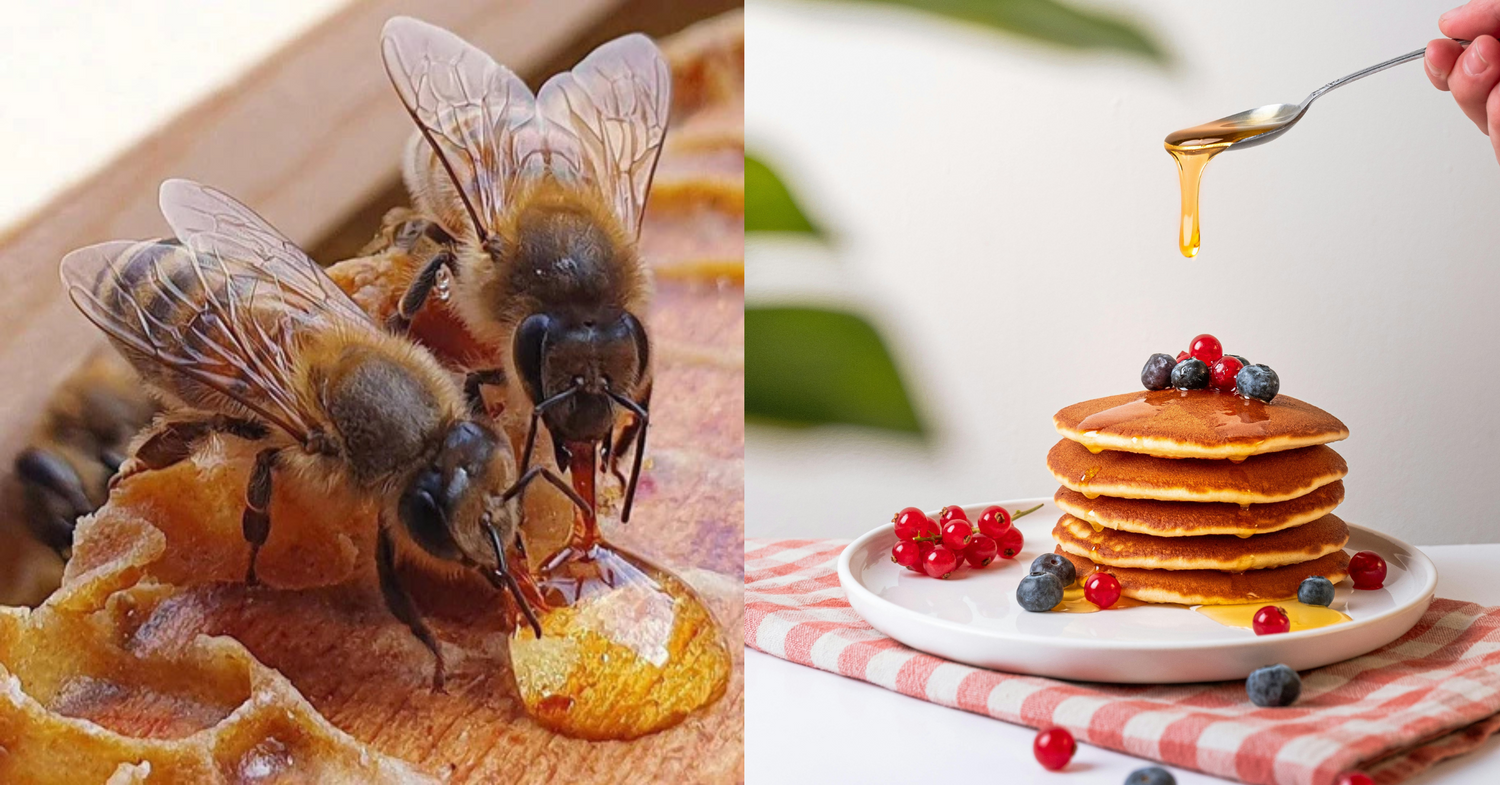Honey, often called “liquid gold,” has been treasured for millennia. Its sweet taste, health benefits, and cultural significance make it a truly remarkable natural product. Let’s explore honey’s journey through history—from sacred rituals to becoming a staple in modern kitchens.
Honey in Ancient Times
A Sacred Treasure in Egypt

The ancient Egyptians revered honey as a gift from the gods. It was used in religious ceremonies, as offerings to deities, and even in mummification to preserve the dead. Archaeologists have uncovered jars of honey in tombs, still edible after thousands of years!
A Healing Wonder in Greece and Rome
In ancient Greece, honey was considered a symbol of health and vitality. Hippocrates, the father of medicine, prescribed honey for treating wounds and illnesses. The Romans, too, loved honey, using it in desserts, drinks like honey wine, and as an essential ingredient in their kitchens.
Symbol of Prosperity in Asia

In India, honey was deeply ingrained in Ayurveda, the traditional system of medicine. It was used for everything from improving digestion to healing skin conditions. In ancient China, honey was a tonic for energy and longevity, often consumed in teas or traditional remedies.
Honey in the Middle Ages
During the Middle Ages, honey was the primary sweetener in Europe before the widespread availability of sugar. Monasteries became centres of beekeeping, producing honey for food, medicine, and brewing mead—a honey-based alcoholic drink. Honey’s antimicrobial properties also made it invaluable for preserving foods and treating wounds.
The Decline and Revival of Honey
The 16th century saw the rise of sugar from sugarcane, which gradually replaced honey as the sweetener of choice.

Despite this, honey retained its appeal thanks to its unique flavour and health benefits. Over time, it transitioned from a household necessity to a prized ingredient used for both culinary and medicinal purposes.
Honey in Modern Times
A Kitchen Essential

Today, honey is a versatile ingredient in kitchens worldwide. From drizzling over pancakes to glazing roasted vegetables, its sweet and floral notes elevate countless dishes. Artisanal honeys like Manuka, acacia, Jungle's Heart (Strawberry flower nectar) and wildflower have become particularly popular for their distinctive flavours.
A Health and Beauty Booster

Modern science supports many ancient claims about honey’s benefits. It soothes sore throats, acts as a natural energy source, and is a favourite in skincare products for its antibacterial and hydrating properties.
A Symbol of Sustainability
Honey production reminds us of the critical role bees play in maintaining ecosystems. Supporting sustainable beekeeping practices not only ensures the availability of honey but also helps preserve biodiversity.
Conclusion: A Timeless Treasure

Honey’s history is a testament to its universal appeal. From ancient rituals to modern recipes, it has transcended time and culture. Every spoonful carries a rich legacy and the hard work of bees.
So, the next time you drizzle honey on your toast or stir it into tea, take a moment to appreciate its incredible journey and the centuries of history it represents.







